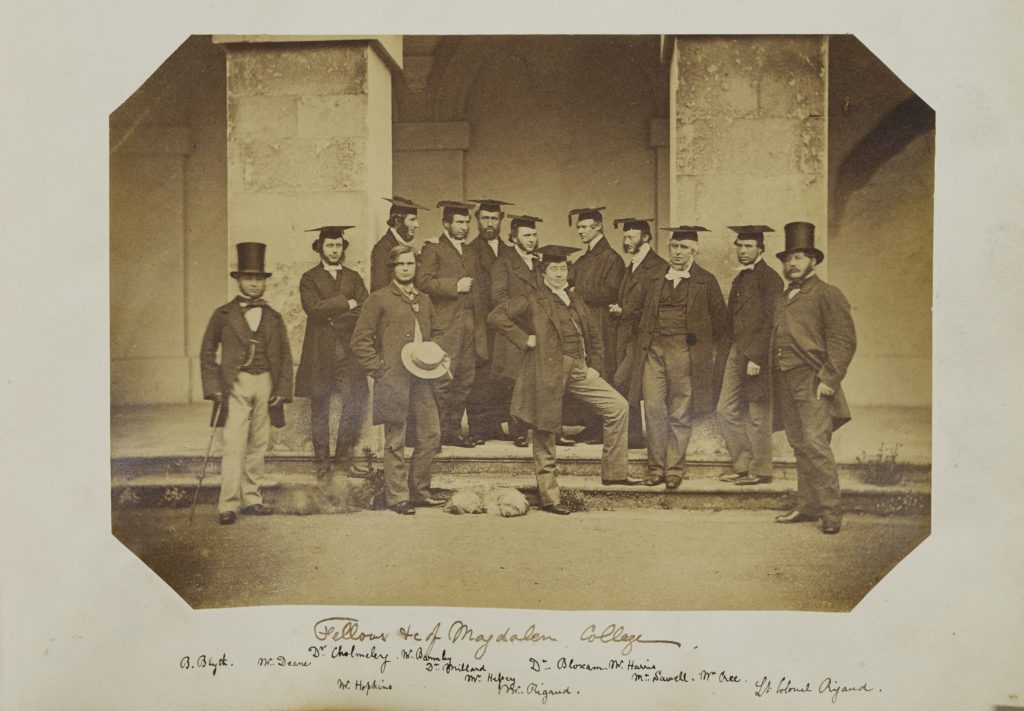
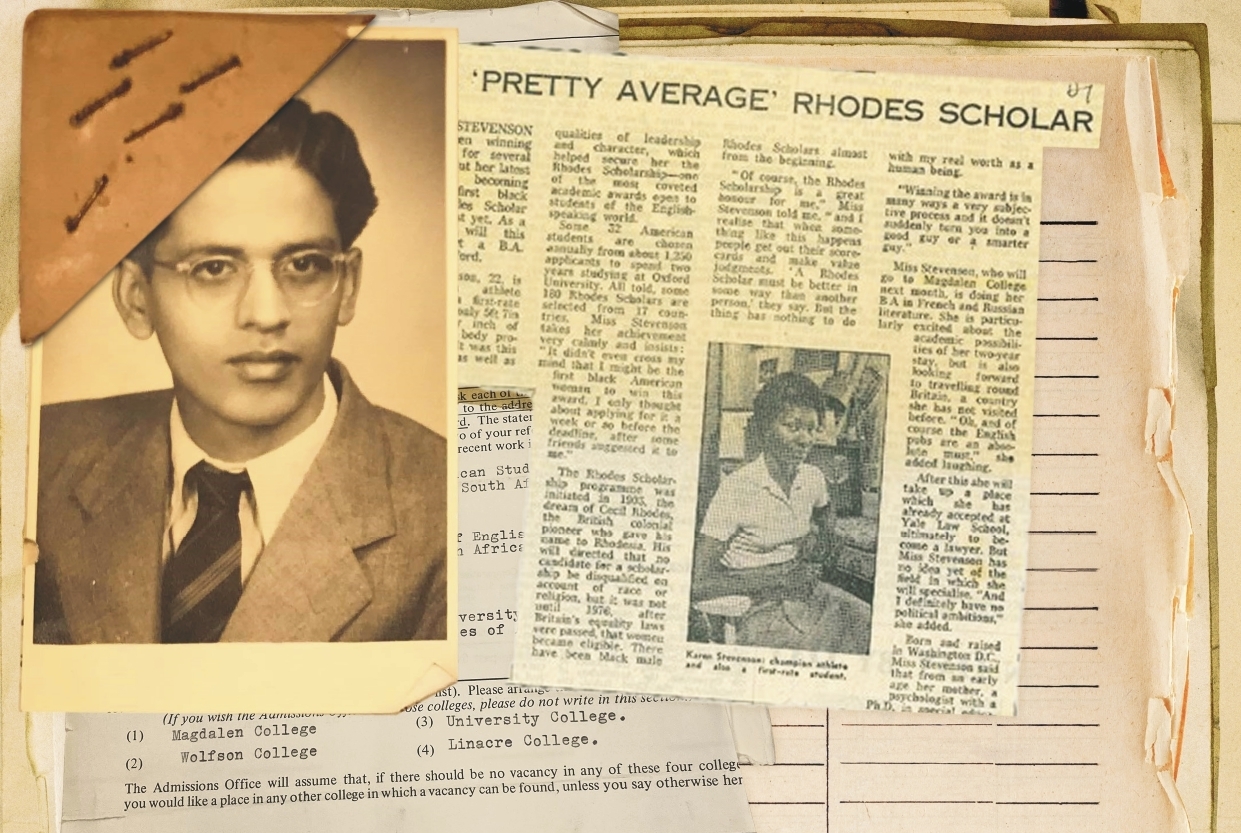

People of colour have been part of the community at Magdalen College, Oxford for at least 175 years. Their experiences have, however, often been marginalised in accounts of the College’s past. This exhibition begins to explore what fragmentary sources from the Magdalen archives can tell us about the lives and identities of some of College’s students and staff since the nineteenth century.
Until the later twentieth century, most of these students came to Magdalen from across the British imperial world, while others were drawn to Oxford through global social or academic networks. Over the last fifty years, an increasing proportion of students and staff grew up as racialised minorities within Britain. This exhibition emerges from the work of five student interns whose diverse skills and perspectives shape the stories we tell.
The exhibition uncovers sources from the archives, including college files, photographs, and publications, and shares new oral and written testimonies. Some of these sources use language and ideas that are uncomfortable and unacceptable today. But, by uncovering this history, we can start to think about how people with African, Arab, Asian, Caribbean or mixed heritage experienced Magdalen in a context that was shaped by imperialism, racism, and white male elitism.
Above all, the exhibition illuminates the diversity of people’s experiences. The lives of people who lived and worked here were always shaped by more than their heritage. By exploring the archival traces left by some of these people, the exhibition seeks to direct a spotlight on the unexpected histories that our archives can reveal and to celebrate their diverse and pioneering lives.
Many people’s experiences and perspectives are not captured within these cases. Sadly, this is the result of gaps within the College archive. In order to curate this exhibition, we have been working with the Magdalen community to collect memorabilia and memories, both written and oral. We hope that the exhibition prompts members of the Magdalen community – past and present – to help the College to continue to develop its archive.
The exhibition is part of College’s long-term commitment to bring to light overlooked aspects of Magdalen’s heritage. The objects shared help us to reflect on our complex, diverse, and sometimes uncomfortable past. By uncovering these histories, we seek to contribute to on-going conversations about the actions we can all take to make a welcoming and inclusive community at Magdalen, in Oxford, and beyond.
Across the great cities and ports, in the making of fortunes, in the construction of great houses and estates, across the lineages of families, across the plunder and display of the wealth of the world as an adjunct to the imperial enterprise, across the hidden histories of statued heroes, in the secrecy of private diaries, even at the centre of the great master-narratives of “Englishness” like the Two World Wars, falls the unscripted shadow of the forgotten “Other”.
The first task, then, is re-defining the nation, re-imagining “Britishness” or “Englishness” itself in a more profoundly inclusive manner.
‘This is not so much a matter of representing “us” as of representing more adequately the degree to which “their” history entails and has always implicated “us”, across the centuries, and vice versa.
Stuart Hall, ‘Whose heritage? Un‐settling “the heritage”, re‐imagining the post‐nation’, Third Text, 13:49 (1999), pp. 3-13, at p. 10
Magdalen College was founded in 1458. The stories people tell about Oxford’s past speak of the actions of elite white men and the versions of Englishness they imagined. The 15 photographs below represent some of the ways in which British imperialism and global power were interwoven with the history of our college.


![‘The Sixth Company of Oxford University Volunteers’, c. 1859-66: In 1859 the threat of a French invasion prompted the British government to encourage the formation of a nationwide network of volunteer corps. The regular British Army was already stretched between the war in Crimea, rebellion in India, and other imperial ventures. By 1863 about one-third of Oxford students had signed up as volunteers.[26] The student volunteers are photographed in Magdalen’s Cloisters, just beneath the Old Library. (MCA: P270/P1/1 f. 19)](https://marginalisedhistories.magd.ox.ac.uk/wp-content/uploads/2022/05/P270.P1.1.f19CROii_1-1024x654.jpg)
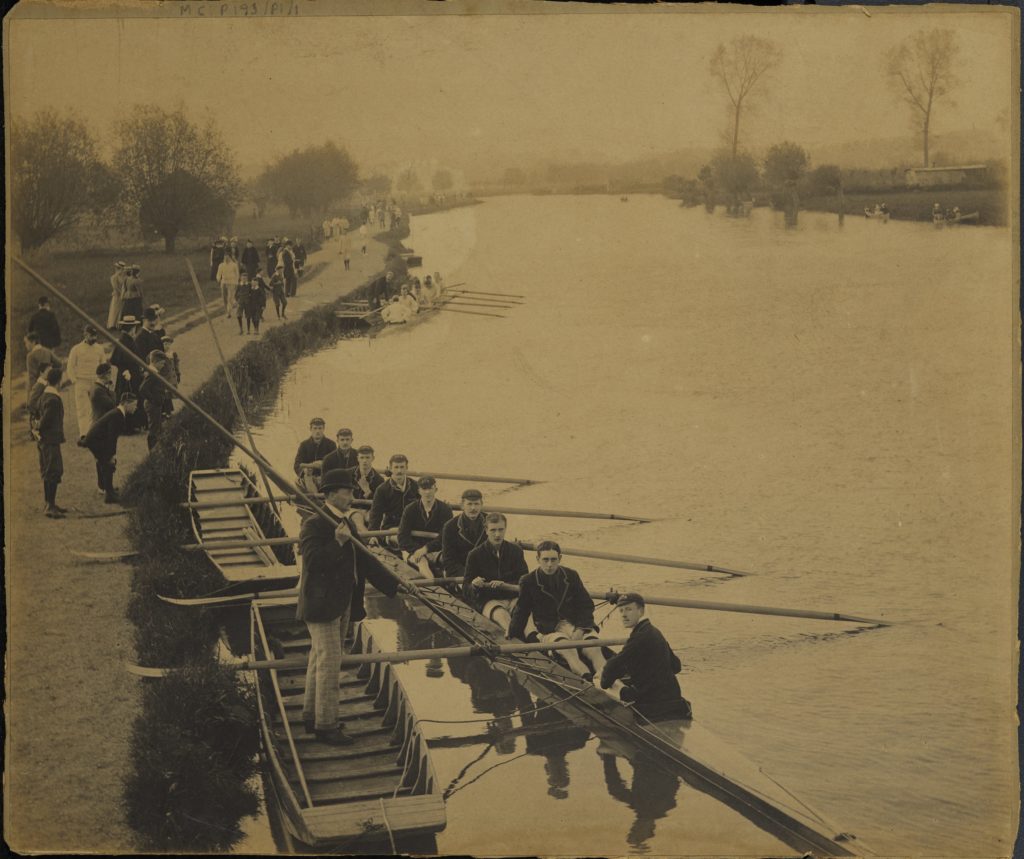
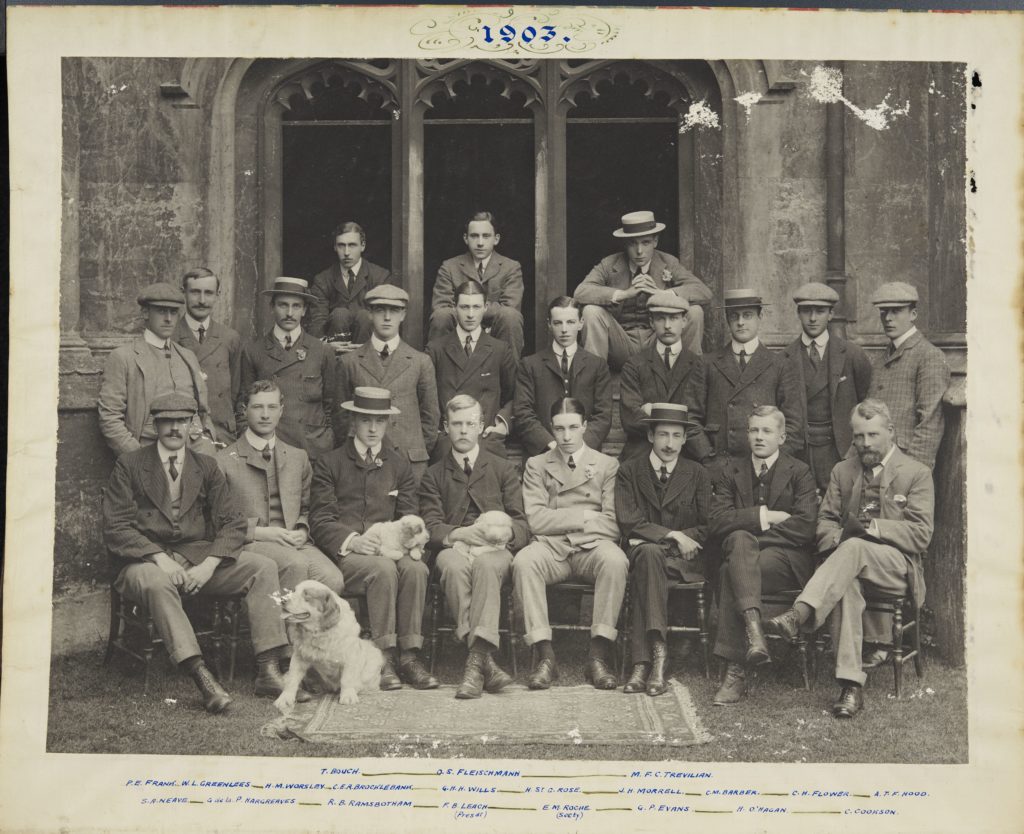
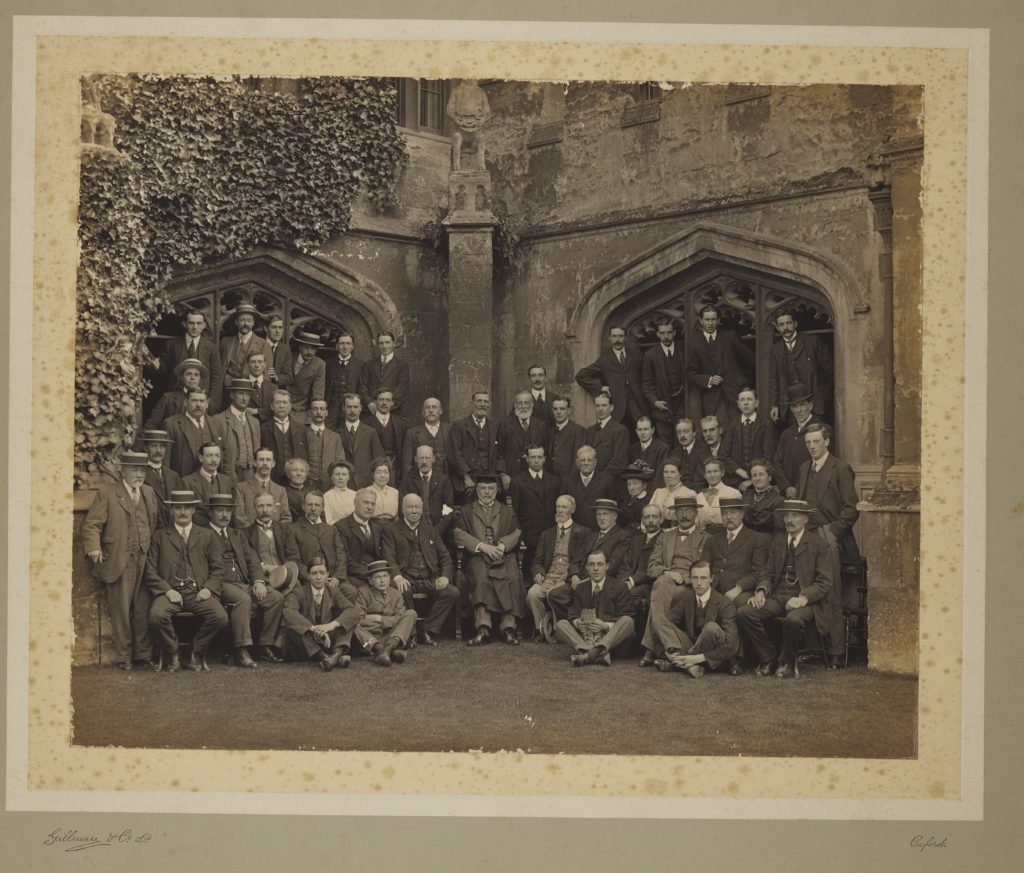
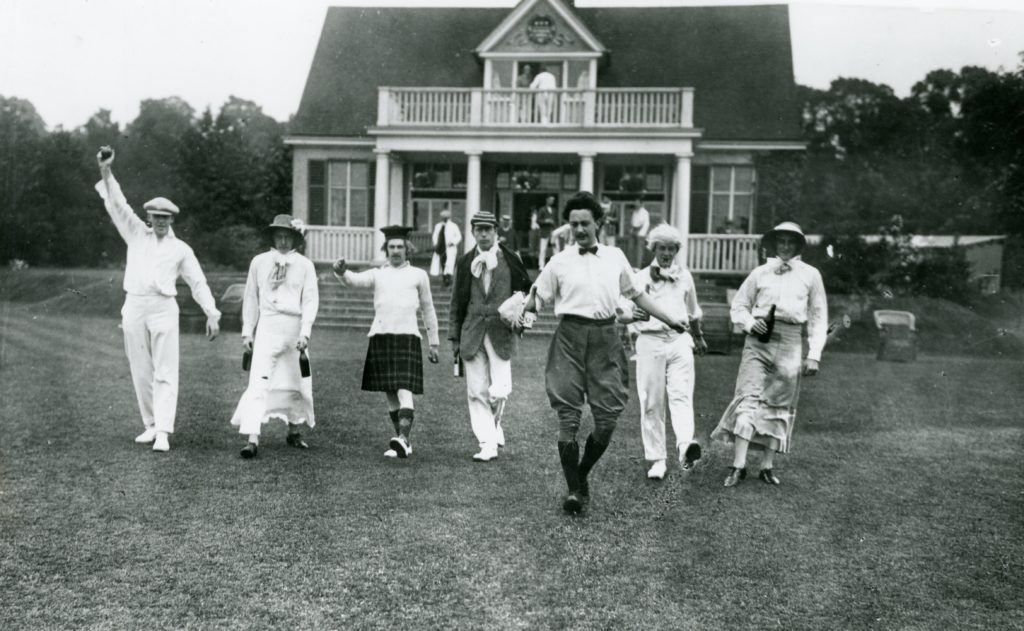
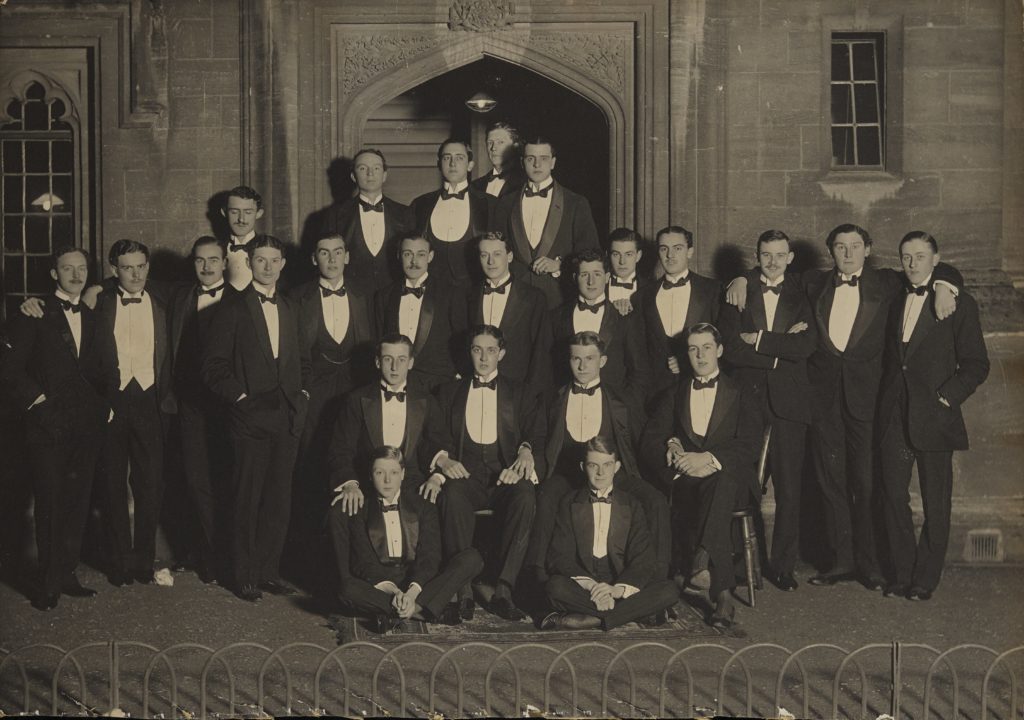
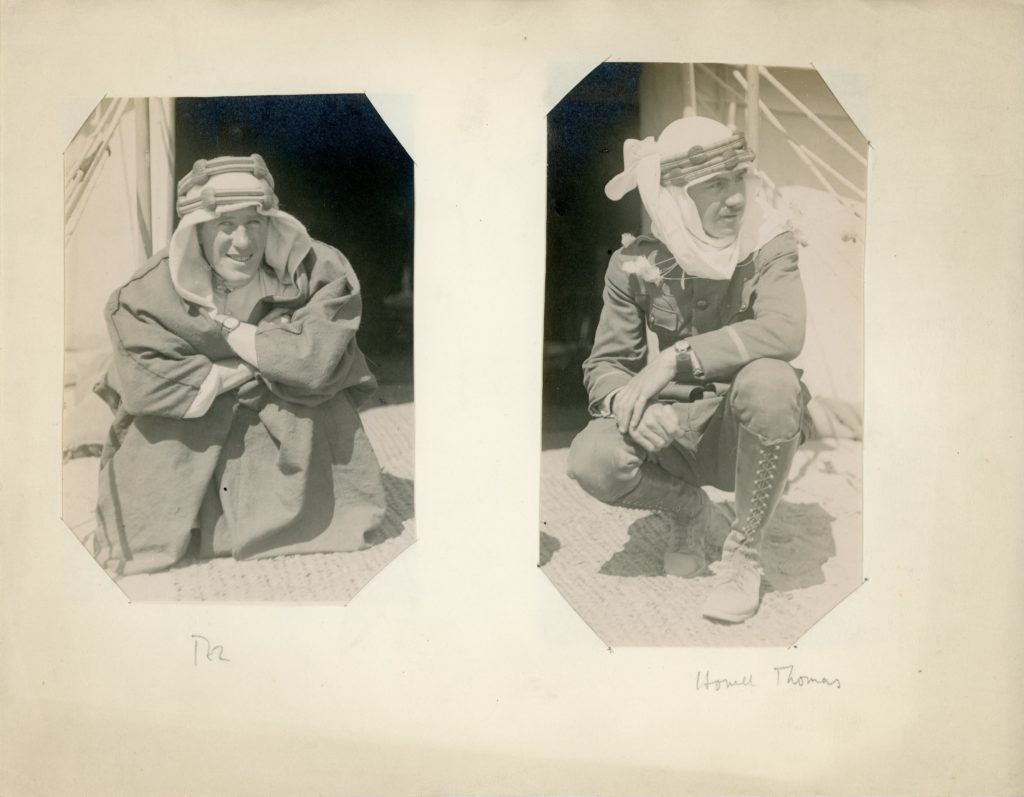
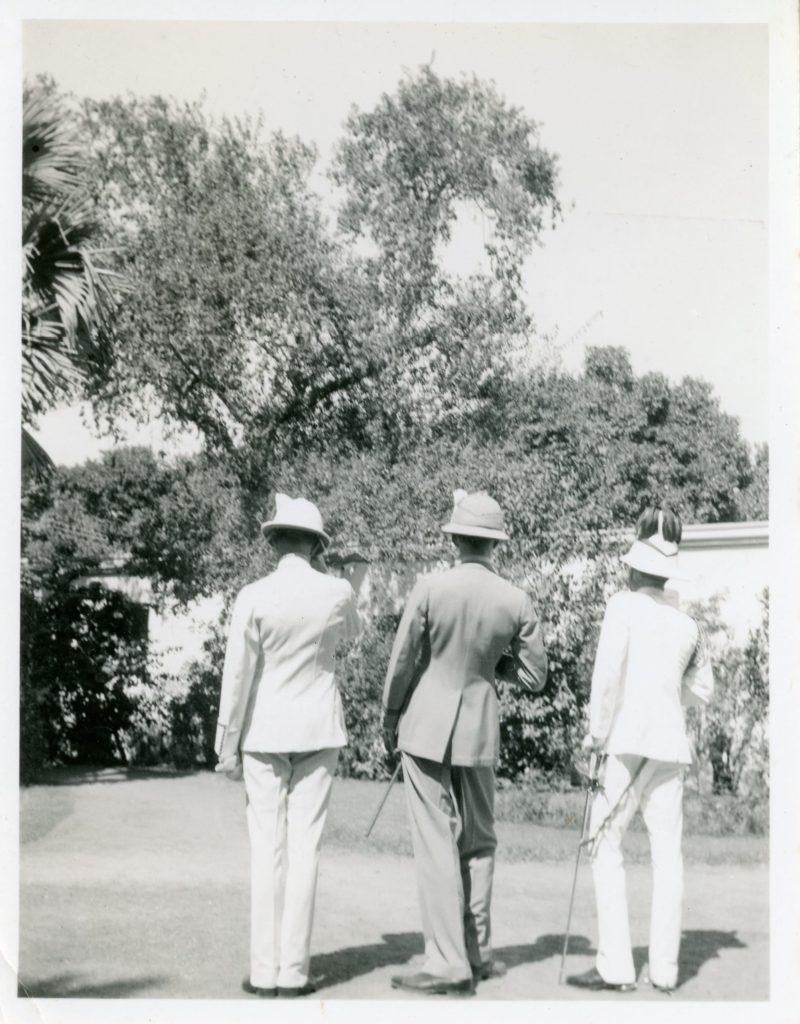
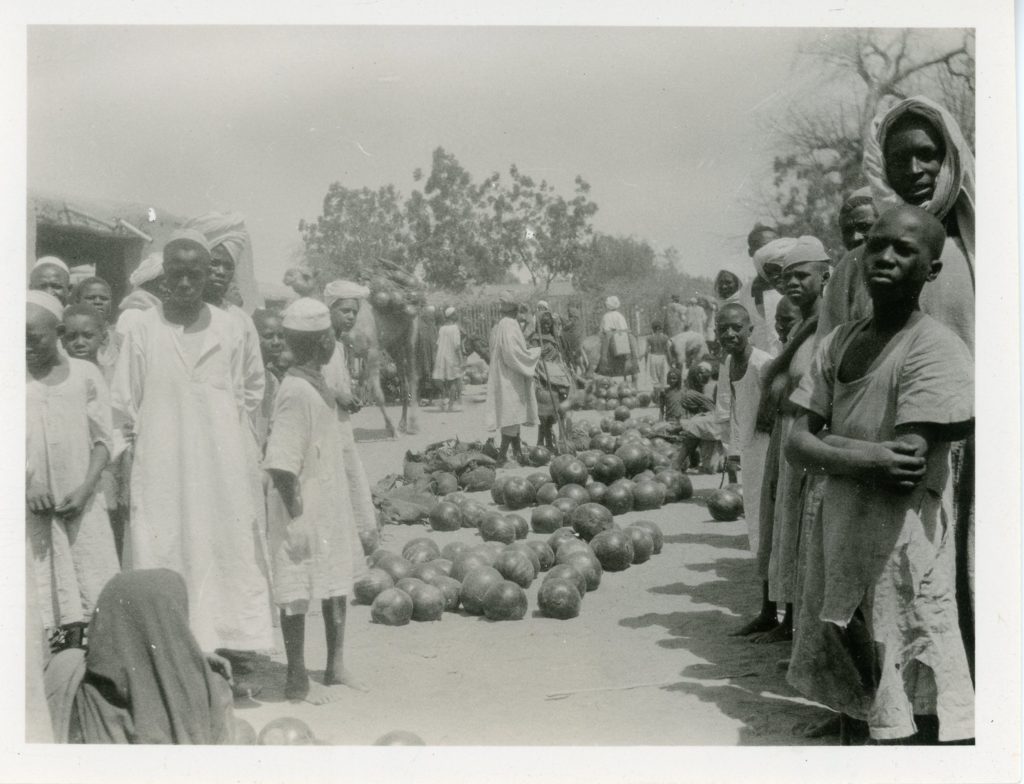
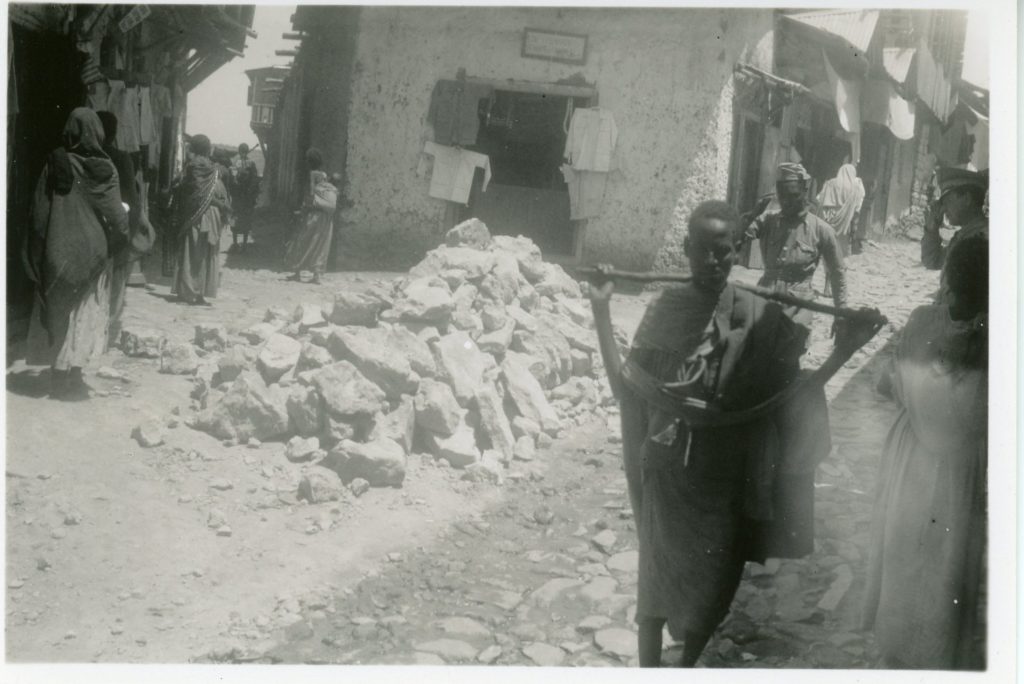
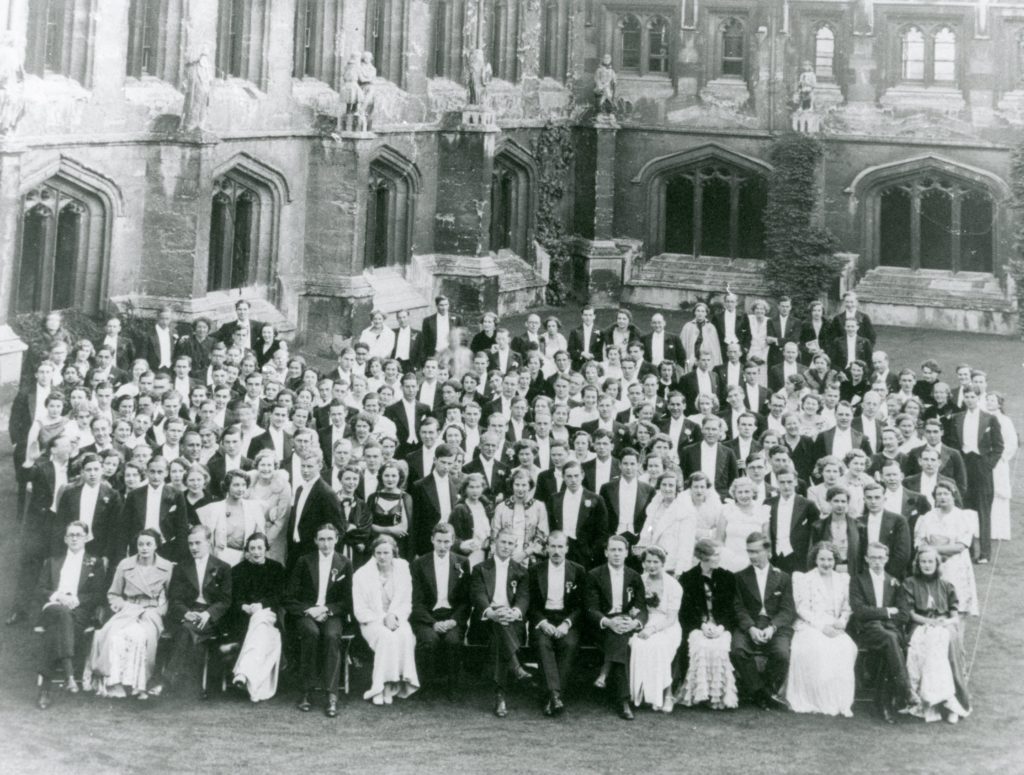
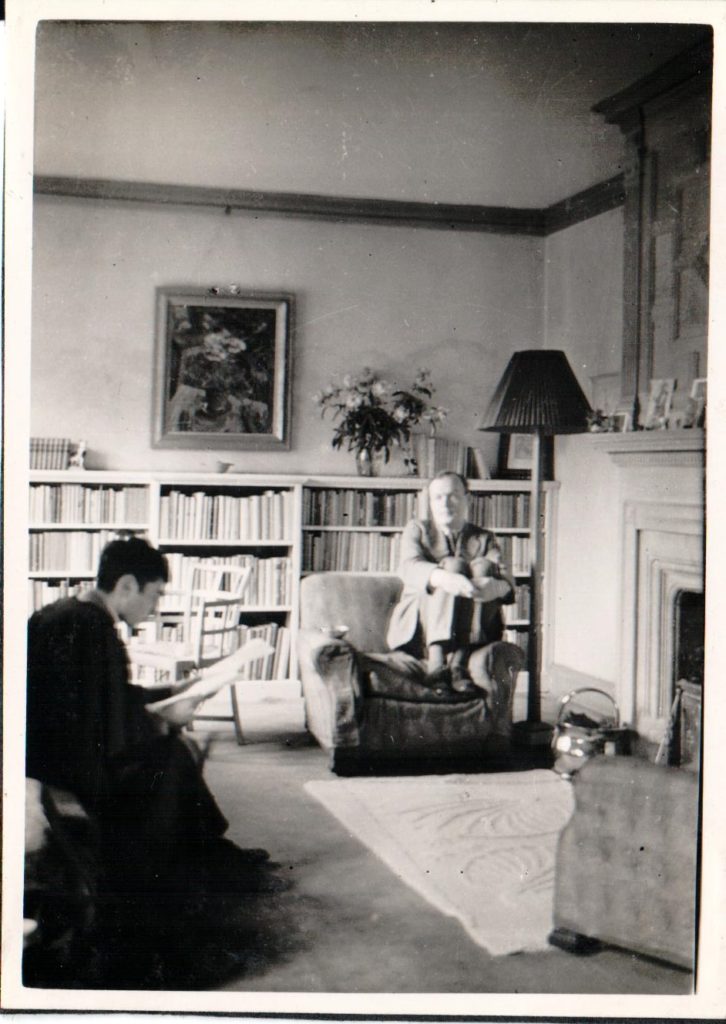
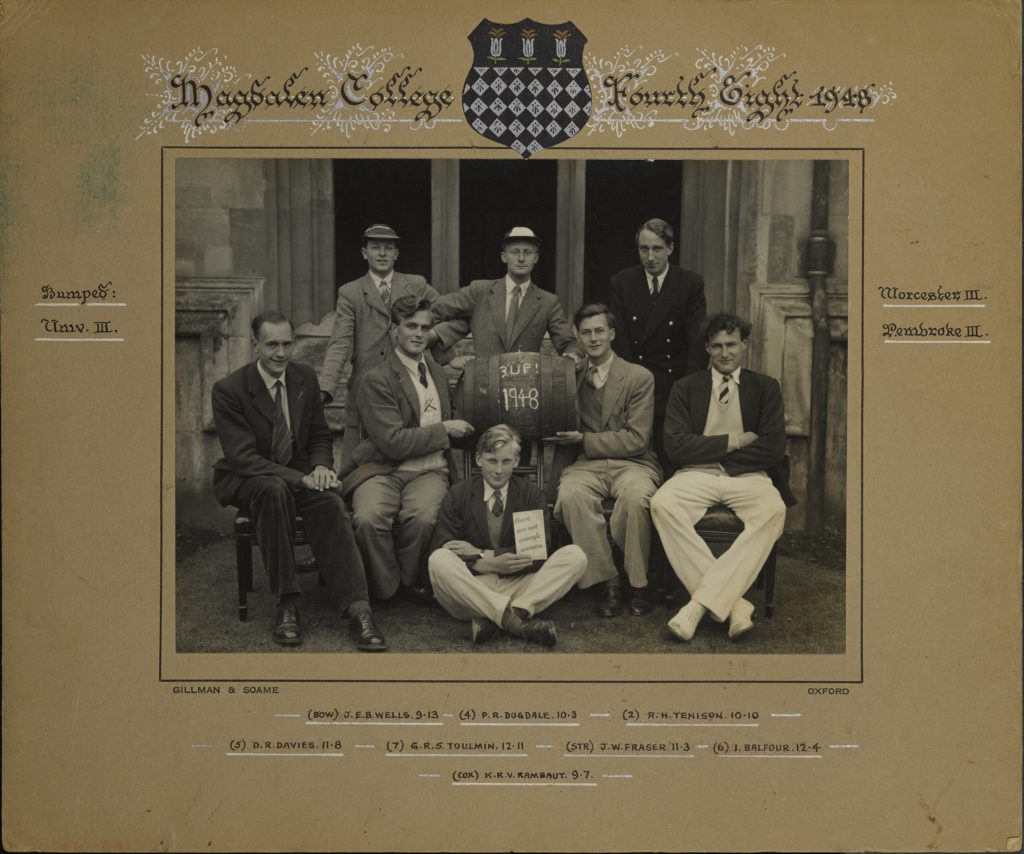
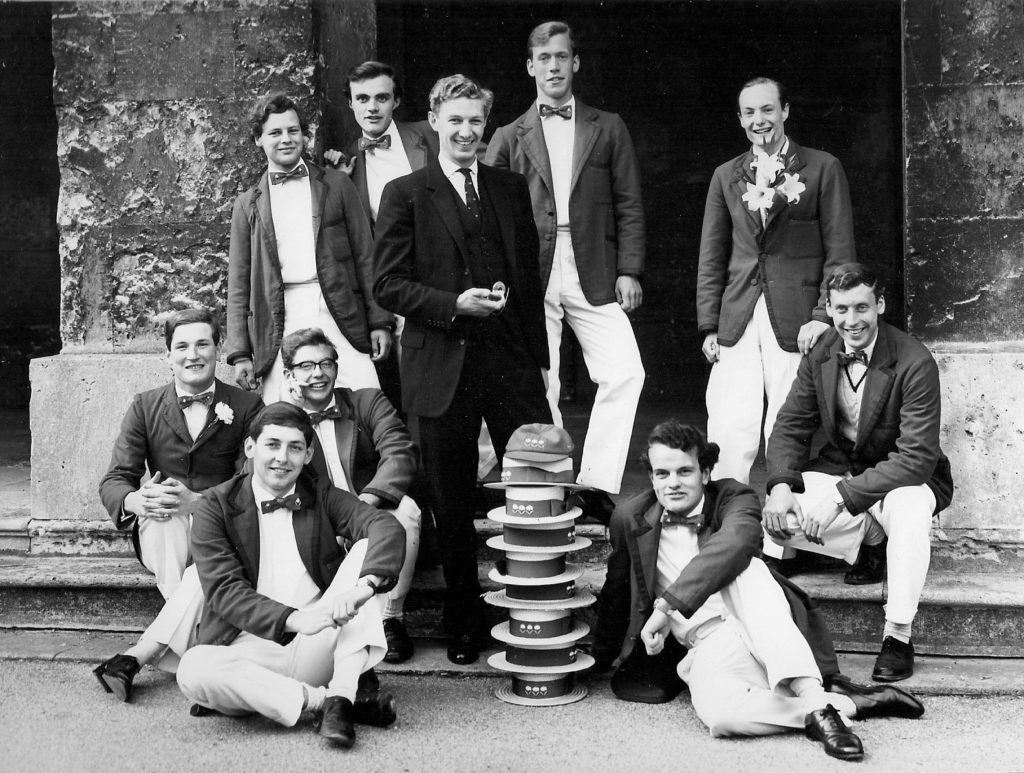
This exhibition tells other stories. We wanted to find out how the history of Magdalen College looks different when we search the archives for traces of the lives of people of colour. The exhibition places histories that have previously been marginalised at the centre of the narrative. To do this, we focus on pioneering individuals, the contexts in which they lived, and the traces that their time at Magdalen have left in the archive.